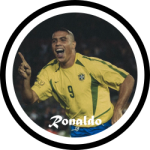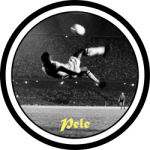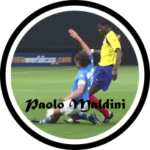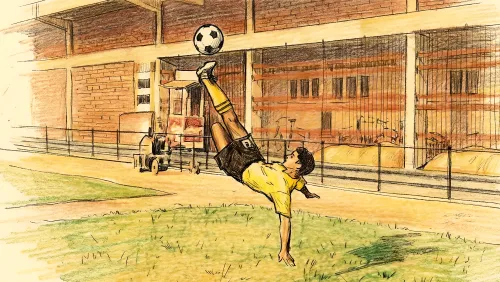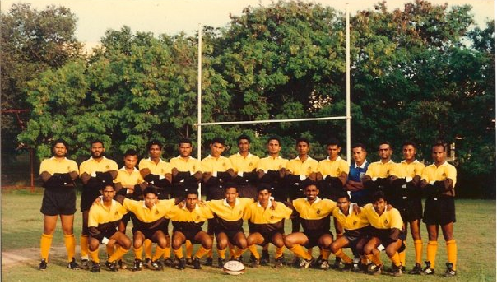🏆 The Elite Ten
🐐 What “Greatest of All Time” Really Means
The Greatest of All Time in football is not the player with the best statistics, the longest career, or the most trophies collected across club competitions. Numbers are shaped by systems, eras, teammates, and longevity.
On this page, Greatest of All Time means something far stricter.
It refers to a footballer at his absolute peak — someone capable of changing an international match, a World Cup, or even the direction of the sport itself almost on his own, with minimal help. These players did not rely on trends or protection. They created the standards others were forced to follow.
Across eras and continents, many reached greatness.
Only a few reached a level where comparison itself stopped making sense.
Legends Who Defined Football
Different styles. Different decades. Different responsibilities.
Yet each of the following legends shared one rare quality — the ability to bend matches, tournaments, and football history to their will.
Some did it with goals.
Some with creativity.
One by making sure danger never existed.
👑 Pelé
The complete standard — football mastered in every form.
⚡ Maradona
One man, one nation — carried teams where none should go.
🔥 Ronaldo (R9)
Pure force — defenders chased shadows, goals followed.
🧠 Messi
Sustained genius — control, vision, and consistency over time.
🎩 Ronaldinho
Joy and imagination — football played with freedom.
🧠 Zidane
Master of the biggest stage — calm when pressure peaked.
🌀 Johan Cruyff
Architect of modern football — ideas that changed the game.
🎯 Van Basten
Perfection at its peak — brilliance cut short, never forgotten.
🎭 Garrincha
Joy turned dominance — unstoppable when it mattered most.
🛡️ Maldini
Defensive perfection — danger was eliminated before it even existed.
👑 Pelé — The King
Everything you see today, he did decades earlier without modern science or technology.
🐐 Maradona — The Genius
Pure magic and rebellion. A street artist who carried nations and made football divine.
🐐 Messi — The Architect
Precision and poetry combined. He designs victories with intelligence, control, and heart.
🐐 Ronaldo—Unstoppable
Explosive pace, power, and clinical beauty. Defenders could only watch the blur go by.
✨ Ronaldinho — Magician
The smile of football. He turned stadiums into carnivals and defenders into props.
🎭 Garrincha-Joy
Played for joy, won through dominance. When Pelé fell, Garrincha lifted a nation.
🧠 Zidane-Composure
Calm under chaos. When the stage was biggest, Zidane controlled time, space, and destiny.
🌀 Johan Cruyff-Vision
Football didn’t just change with Cruyff — it learned how to think.
⚡ Van Basten — The Falcon
Grace in motion, lethal in flight. Every goal struck with elegance, every finish a masterpiece.
🛡️ Maldini — The Wall
The arc of defence, football’s eternal guardian where every attack ended.
🌍 Where Greatness Is Tested
Greatness in football is not revealed in comfort.
It is tested when the stakes are absolute — World Cups, international tournaments, finals, injuries, penalties, and moments where there is no margin for error. These stages strip away systems, protection, and excuses. What remains is truth.
Pelé, Diego Maradona, Ronaldo Nazário (R9), Lionel Messi, Ronaldinho, Zinedine Zidane, and Garrincha proved themselves when football demanded everything. They didn’t just appear on the biggest stage they shaped it.
Garrincha’s story captures this truth perfectly. He played football for joy and entertainment, yet when Pelé was injured in the 1962 World Cup, Garrincha transformed from artist to leader. He dominated the tournament, carried Brazil to the title, and earned Player of the Tournament honors. Together, Pelé and Garrincha represented Brazil at full strength — a combination so powerful that Brazil never lost an international match when they played together. That was not coincidence; it was dominance revealed under pressure.
Greatness is also tested in denial.
Johan Cruyff never lifted the World Cup, yet he transformed football’s language itself. His intelligence, movement, and positional freedom reshaped how the game is played, coached, and understood. His impact transcends trophies.
Marco van Basten reached a level of perfection few have touched, only injuries could stop him. His career reminds us that greatness is not measured by duration, but by how high the peak truly was.
And then there is Paolo Maldini — proof that greatness is not only about scoring. In the 1994 World Cup Final, Italy held a powerful Brazil side scoreless for 120 minutes. Even the eventual champions could not break that defense. Only penalties denied Maldini the ultimate prize. His mastery was not reactive — danger was eliminated before it could even exist.
This is where greatness is tested — not only by medals, but by impact, responsibility, and truth under pressure.
Not all legends are crowned the same way. But the greatest are always revealed when everything is on the line.
🌟 World-Class Voices: Endorsing the Elite Five
Pelé • Diego Maradona • Ronaldo Nazário (R9) • Maldini • Messi
“Not just the greatest — these five stand alone.”
Franz Beckenbauer
👑 Pelé
“Pelé is the greatest footballer of all time. He had everything — skill, intelligence, and greatness under pressure.”
Franz Beckenbauer
Pelé is the greatest footballer of all time. He had everything skill, intelligence, and greatness under pressure.
Fabio Cannavaro
Ronaldo was the hardest player I ever faced. If he was fit, you were in trouble.
Gary Lineker
“Maradona could do things no one else could do — and do them when it mattered most.”
Pep Guardiola
Describes Messi as “on another level” and often references Pelé, Maradona, and Ronaldo Nazário when discussing the all-time greats.
Michel Platini
There was Pelé, and then there was Maradona. They are the two greatest players ever.
Paolo Maldini
Said the two best he ever faced were Maradona and Ronaldo Nazário. Has also praised Messi and Pelé as all-time greats.
Bobby Charlton
“Pelé was the complete footballer. No one else comes close.”
Pep Guardiola
“Ronaldo (R9) was the most decisive striker I’ve ever seen. Impossible to stop at his best.”
Luka Modrić
In a six-a-side dream team, picked Pelé, Maradona, Maldini, Ronaldo Nazário — no Messi or Cristiano, showing personal generational taste.
Franz Beckenbauer
Said Pelé had no comparison; frequently included Maradona, Messi, and Ronaldo Nazário in GOAT conversations.
Bobby Moore
Called Pelé the most complete player he’d ever seen. Viewed Maradona and early Brazilian stars with great reverence.
 GOAT Tier
GOAT Tier
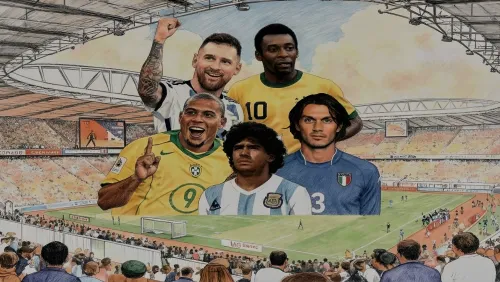
Pelé • Maradona• Ronaldo(R9)• Messi• Maldini•
When the noise fades, eras blur, and debates finally fall silent, five names remain — not chosen by numbers, not elevated by longevity, but revealed through impact under the highest pressure football can produce. These five reached places the game itself has not revisited.
🔥 Football’s Highest Tier
🔥 Five names. Five forces. Ronaldo Nazário shattered defenses, Paolo Maldini erased danger, Pelé defined perfection, Diego Maradona bent reality, and Lionel Messi solved the game with relentless precision. Different eras, different roles, the same outcome — inevitability. When they stepped onto the pitch, systems failed, plans collapsed, and history followed. This is not debate. This is football pushed to its absolute limit.
👑 Pelé
👑 Pelé stands as the original standard. Before football became global, tactical, and measured, he mastered every dimension of the game — skill, intelligence, athleticism, and composure. Three World Cups and complete command across roles placed him beyond comparison. He is not part of the debate; he is the reference point.
🔥 Ronaldo Nazário (R9)
🔥 Ronaldo (R9) embodies attacking dominance at its absolute peak. Speed, power, balance, and finishing combined into a force defenders could not read, react to, or contain. At full flight, resistance became irrelevant. Even injuries could not erase what his peak revealed — a level of attacking supremacy the game has not matched.
🛡️Paolo Maldini
🛡️Maldini embodies defensive dominance at its absolute peak. Positioning, anticipation, and intelligence combined into a presence attackers could not penetrate, outthink, or bypass. With Maldini, danger vanished before it formed. Even the greatest attacks were reduced to impossibility — a level of defensive supremacy the game has never surpassed.
🧠 Lionel Messi
🧠 Messi defines sustained greatness through precision, intelligence, and relentless consistency. His movement, vision, and finishing dismantle defenses without chaos or force. With Messi, control is absolute and outcomes feel predetermined. Season after season, he solved football with quiet mastery — perfection refined over time.
⚡ Diego Maradona
⚡ Maradona represents football at its most extreme. When structure collapsed and help was limited, he carried the entire burden himself. Under relentless pressure and expectation, he bent matches and tournaments through sheer will and genius. If victory has ever been created by one man alone, it was Maradona.

